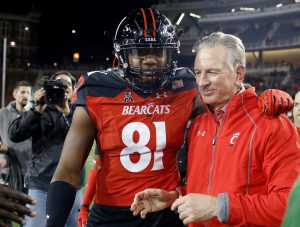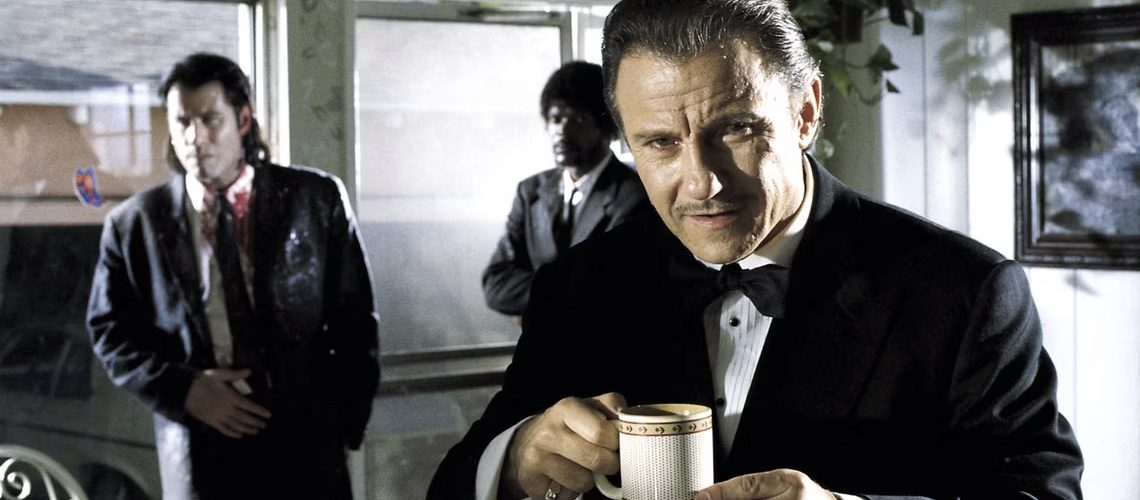The 1984 film Pulp Fiction features Harvey Keitel as Winston Wolfe, a fixer and cleaner. A fixer is a person who disposes of bodies; one who “cleans up” physical evidence of crime is also more specifically called a cleaner.
America has a national crime: Racism. In our history, we have been responsible for countless acts of violence, murder, abuse, rape, lynching, segregation and lack of equality and opportunity. The dead cry out to us from blood-soaked soil.
The cleaners in our political chaos are called in to whitewash our national crime. The most recent addition to the ranks of the cleaners is Sen. Tommy Tuberville, Republican from Alabama.
Racism as an attitude?
Tuberville wants us to believe racism is an attitude being pushed on Americans. He offers an old idea as justification for claiming America no longer has a problem with racism — color blindness. For conservatives, Tuberville may be the best defender of the color-blind option.

Tommy Tuberville, then head coach of the Cincinnati Bearcats, congratulates DJ Dowdy #81 of the Cincinnati Bearcats after defeating the East Carolina Pirates in Cincinnati, Ohio. (Photo by Kirk Irwin/Getty Images)
In a Fox News interview with Larry Kudlow, the setup provided detail about all the major universities where Tuberville had been the head football coach. Kudlow introduced Tuberville with these words: “The head football coach at four major universities spanning 24 years — Ole Miss, Auburn, Texas Tech and Cincinnati. A teacher and mentor to literally thousands of students down through the years.”
The message was clear: Coach Tuberville is not racist, because he coached football teams where most of the players were Black. Obviously, Tuberville made sure the best players were on the field to give him the best chance to win. Doesn’t the experience of African American athletes demonstrate we are no longer a racist society?
Short answer: No.
Regarding the football-coach-turned-senator’s notion that racism is “an attitude being pushed on Americans,” at least he uses the right word — “pushed.” Racism has been pushed down the throats of people of color for at least 19 centuries.
“At least he uses the right word — ‘pushed.’ Racism has been pushed down the throats of people of color for at least 19 centuries.”
Tuberville is correct in his assumption that racism started as an attitude; he is just centuries late making the assertion. As J. Cameron Carter illustrates in Race: A Theological Account, the attitude that created racism was a Gnostic belief in the second century. Gnostic Christians deprived Jesus of his Jewishness and made him a white man. The whiteness led to colonialism, slavery and segregation. Whiteness remains the structural basis of our nation.
As Chicago pastor Jeremiah Wright insisted, a few examples of success by African Americans doesn’t signify the end of racism. Wright speaks a truth Tuberville attempts to avoid: “The United States government has failed the vast majority of her citizens of African descent. Think about this, think about this. For every one Oprah, a billionaire, you got 5 million Blacks who are out of work. For every one Colin Powell, a millionaire, you got 10 million Blacks who cannot read. For every one (Condoleezza) Rice, you got 1 million in prison. … For every one Tiger Woods, we got 10,000 Black kids who will never see a golf course. The United States government has failed the vast majority of her citizens of African descent.”
When racism originated in “attitude form,” it was the most pernicious, subtle and dangerous attitude since the talking snake in Eden. The attitude of racism, now full grown as practices and structures, is America’s reality. No one has to push the idea.
Anyone who claims racism still is an “attitude” has not paid any attention to the number of unarmed young Black men who have been killed by police in the last decade.
Confession
The ancient church always knew the universal need of humanity to confess our sins. No wonder the Prayer of Confession goes straight to the heart of our deepest sins and crimes:
Most merciful God,
we confess that we have sinned against you
in thought, word and deed,
by what we have done,
and by what we have left undone.
We have not loved you with our whole heart;
we have not loved our neighbors as ourselves.
We are truly sorry, and we humbly repent.
Racism is the opposite of neighbor love. The history of humanity has been written in our attempts at extending neighbor love to those who are different.
“Racism is the opposite of neighbor love.”
Tuberville wants the nation to forego confession by accepting a previously discredited ideology known as color blindness. That a sitting U.S. senator would fall back on a discredited idea known as color blindness to appear as the voice of intellectual reason is a joke.
Color blindness has become the cover for words that are already used as a cover for racism — welfare, immigration, crime. This suggests color blindness is an insidious form of microaggression, an ideology that race no longer matters.
Color blindness is a mask to hide racism — one more argument that aligns with attempts to rewrite American history, whitewash slavery as not so bad and pretend America is no longer racist. The appeal to color blindness falls short of being a legitimate argument.
Tuberville uses his experience as a major university football coach to insist that he is “color bind.” Football provides an even playing field for all athletes. You have to be the best to make the starting lineup. A football player is not selected on the basis of race, but merit. That is true. This doesn’t mean anyone involved in the process is color blind.
Ibram X. Kendi, in How to Be an Antiracist, says, “The ‘I’m not racist’ or ‘that’s not racist’ is the cop-out cousin to color blindness. The ‘not racist’ and the ‘color-blind’ individual, by pretending not to see race, fails to see racism and falls into racist passivity. … The language of color blindness — like the language of ‘not racist’ — is a mask to hide racism.”
Where’s the evidence?
If America has moved on from racism, why do we continue to have so many racist violations? For example, racist slurs remain a part of the national dialogue.
The “cleaners” of racist language insist that slurs now only occur among obvious white supremacists and the uneducated but not in the public sphere. This, of course, is not the case. Racial slurs constantly refer to African Americans as “animals” and use the n-word.
“The ‘cleaners’ of racist language insist that slurs now only occur among obvious white supremacists and the uneducated but not in the public sphere.”
Pamela Ramsey Taylor, a white woman in Clay County, W.Va., said, “It will be refreshing to have a classy, beautiful, dignified first lady in the White House. I’m tired of seeing an ape in heels.” A Colorado doctor, Michelle Herren said, “Monkey face and poor Ebonic English!!! There! I feel better and am still not racist!!! Just calling it like it is!” Keeping up with the racist statements made by people who swear, “I’m not racist” or “I’m color blind” would be like trying to make a list of Donald Trump’s lies.
Let’s grant that Tuberville is not a racist as an individual. Perhaps this could help relieve the resentment some white people feel at being called “racist.” The subject here is systemic and institutionalized racism. In this sense, racism is not about racial “prejudice” or “discrimination” of the conscious, explicitly ill-willed sort.
To set aside the question of whether Tuberville is racist may be a generous gesture. For instance, Tuberville recently said Democrats “want crime because they want to take over what you got.”
“They want to control what you have,” he added during a rally in Nevada held by Donald Trump. “They want reparations because they think the people that do the crime are owed that.”
That is not material Coach Tuberville would have used on the recruiting trail but now uses as a Republican senator.
While Tuberville claims to be color blind, in Alabama, Tuberville’s own state, the legislature continues to defy the Supreme Court’s orders to create another Black majority legislative district.
Two mistakes
Tuberville has made two mistakes: He suggests racism is an attitude when it is our national reality. And he insists the answer is to be color blind.
All forms of blindness deal with one reality: The blind can’t see. “Blindness” — any blindness — is not indicative of the ability to see anything at all. If Tuberville, the senator, could see the reality of racism as well as Tuberville, the coach, recognized a “cover-two” defense, the nation would see more clearly and do much better.
In the final analysis, Tuberville sounds like Flannery O’Connor’s tortured preacher, Haze Motes: “I’m member and preacher to that church where the blind don’t see and the lame don’t walk and what’s dead stays that way.”

Rodney Kennedy
Rodney W. Kennedy is a pastor and writer in New York state. He is the author of 10 books, including his latest, Good and Evil in the Garden of Democracy.
Related articles:
Woke, awake or unfaithful? Racism in the white church
PRRI’s Structural Racism Index attempts to quantify racist beliefs


